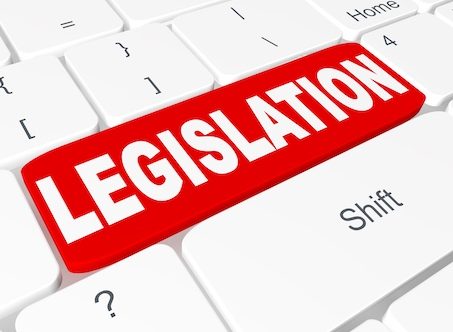“None of this activity, which Director Vidal herself called an ‘abuse of process,’ would have been possible under the PREVAIL Act.” – USIJ White Paper
 The Alliance of U.S. Startups and Inventors for Jobs (USIJ) published a White Paper this week applauding the introduction of the Promoting and Respecting Economically Vital American Innovation Leadership (PREVAIL) Act, which was introduced in June. As part of the paper, USIJ presented four case studies demonstrating how some high-profile Patent Trial and Appeal Board (PTAB) cases might have played out if the bill’s provisions had already been in force.
The Alliance of U.S. Startups and Inventors for Jobs (USIJ) published a White Paper this week applauding the introduction of the Promoting and Respecting Economically Vital American Innovation Leadership (PREVAIL) Act, which was introduced in June. As part of the paper, USIJ presented four case studies demonstrating how some high-profile Patent Trial and Appeal Board (PTAB) cases might have played out if the bill’s provisions had already been in force.
The PREVAIL Act was introduced by Senators Chris Coons (D-DE), Thom Tillis (R-NC), Dick Durbin (D-IL) and Mazie Hirono (D-HI) in June with the aim of substantively reforming the PTAB. The bill would:
- Require standing for PTAB challengers—specifically, that they must have been sued or threatened with a patent infringement lawsuit before filing a PTAB challenge—and limit multiple petitions against the same patent by “prohibiting any entity financially contributing to a PTAB challenge from bringing its own challenge”;
- Do away with joinder for time-barred parties;
- Apply estoppel at the time the challenge is filed rather than after the Final Written Decision;
- Institute a “clear and convincing evidence” standard for patent invalidity at the PTAB and require claims be interpreted using the “plain and ordinary meaning” standard used in district courts;
- Require the Director to establish a Code of Conduct for PTAB judges and would demand more transparency of the USPTO Director with respect to their involvement in PTAB decisions;
- Require parties to choose whether to bring their action at the PTAB or in district court, but not both, in an effort to end duplicative proceedings;
- End the practice of filing reexaminations following failed PTAB petitions;
- End fee diversion;
- Mandate reports that would evaluate “the impact of patents and abusive demand letters on small businesses” and expand access to patent-searching databases that are available only in-person at public search facilities; and
- Establish that PTAB judges who decide whether to institute a post-grant proceeding would not be the same judges who decide the outcome of the proceeding.
What Could Have Been
According to the USIJ paper, had the Prevail Act been law at the time of the infamous Intel Corp., OpenSky Industries LLC, and Patent Quality Assurance LLC v. VLSI Technology LLC saga, we would have all been spared the drama. “None of this activity, which Director Vidal herself called an ‘abuse of process,’ would have been possible under the PREVAIL Act,” wrote USIJ. This is because neither OpenSky nor PQA could have satisfied the standing requirement, Intel’s petitions would have been rejected due to the prior district court case, and “Intel would have been subject to a rebuttable presumption against joinder in view of its otherwise time-barred status.” Even if Intel had somehow succeeded in getting review at the PTAB, it would have had to abandon its invalidity defenses in the district court litigation and appeal and the heightened clear-and-convincing-evidence burden of proof might have changed the outcome of its PTAB case.
In Cisco Systems, Inc. and Palo Alto Networks, Inc. v. Centripetal Networks, Inc., Centripetal filed a Motion for Recusal and Vacatur in late December 2022 in an IPR brought against it in November 2021 by Palo Alto Networks, which Cisco Systems, Inc. successfully petitioned to join, despite being statutorily time-barred from filing its own petition. Centripetal’s Motion argued that Administrative Patent Judge (APJ) Brian McNamara created at least the appearance of actual bias in failing to provide “notice, divestiture, or any apparent attempt to recuse” himself from proceedings involving Cisco despite owning Cisco stock and being “paid a significant amount of money (apparently a share of the profits) from one of Cisco’s lobbyist law firms,” according to the Motion.
USIJ said that, under the PREVAIL Act, “the standing requirement likely would have foreclosed Palo Alto Networks’ petition altogether because it had not been accused of infringing the relevant patent, and at minimum Cisco’s joinder petition would have been barred due to the prior, final judgment of validity in the district court litigation.”
Furthermore, Cisco would have been barred from pursuing invalidity in the district court remand proceedings after being joined to the IPR, but also probably wouldn’t have been joined to the IPR in the first place due to the time bar.
The PREVAIL Act’s code of conduct provisions would also have precluded the PTAB judge holding Cisco stock from sitting on the panel.
The paper also detailed how the PREVAIL Act would have thwarted abuses in both Code200, UAB et al. v. Bright Data Ltd. and Google, Inc., Samsung Electronics Co. Ltd., and others v. Netlist Inc.
“The AIA included structural flaws that subjected patent owners to lower invalidation standards, permitted anyone to file petitions, and omitted sufficient ethical safeguards, among other shortcomings,” said the USIJ paper. “Rather than curbing unnecessary litigation, the PTAB has multiplied proceedings and costs for all involved.”
Image Source: Deposit Photos
Copyright: Konstantinp
Image ID: 70846679

![[IPWatchdog Logo]](https://ipwatchdog.com/wp-content/themes/IPWatchdog%20-%202023/assets/images/temp/logo-small@2x.png)

![[Advertisement]](https://ipwatchdog.com/wp-content/uploads/2024/04/UnitedLex-May-2-2024-sidebar-700x500-1.jpg)
![[Advertisement]](https://ipwatchdog.com/wp-content/uploads/2024/04/Patent-Litigation-Masters-2024-sidebar-700x500-1.jpg)

![[Advertisement]](https://ipwatchdog.com/wp-content/uploads/2021/12/WEBINAR-336-x-280-px.png)
![[Advertisement]](https://ipwatchdog.com/wp-content/uploads/2021/12/2021-Patent-Practice-on-Demand-recorded-Feb-2021-336-x-280.jpg)
![[Advertisement]](https://ipwatchdog.com/wp-content/uploads/2021/12/Ad-4-The-Invent-Patent-System™.png)






Join the Discussion
One comment so far.
Anon
July 27, 2023 11:52 amThis is clearly funded by Fortress. None of this would have been possible without NHK/Fintiv. With NHK/Fintiv AND PREVAIL, you have America’s microchip industry (and other productive parts of the economy) paying billions to litigation funders for a couple of objectively worthless patents